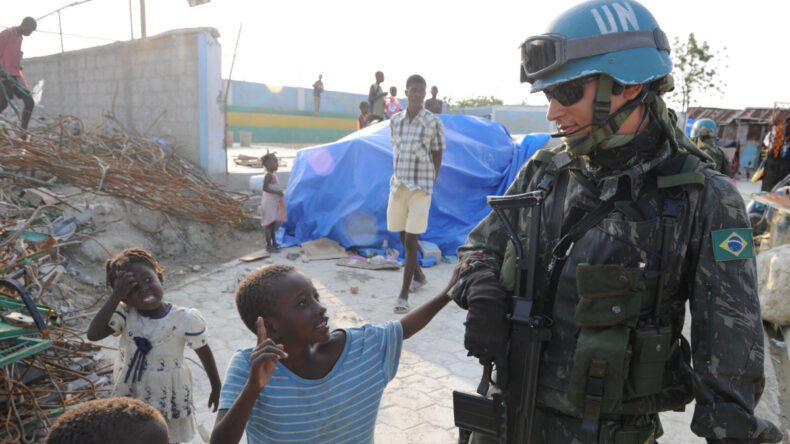Women and girls were left to confront poverty, social stigma, and the challenges of single motherhood in the most economically disadvantaged nation in Haiti.
There have been numerous allegations of sexual encounters, including several accusations of rape, involving peacekeepers during the 13-year mission aimed at stabilizing Haiti after the conflict and the devastating 2010 earthquake.
In the aftermath of a troubling incident in Haiti, the matter underwent a renewed examination in the past, driven by the findings of the International Peacekeeping study. This comprehensive study was based on interviews conducted with over 2,000 Haitian residents residing in close proximity to United Nations (UN) bases. Its primary focus was to shed light on the experiences of women and girls during the peacekeeping mission, which concluded in 2017.

Children Left Behind by UN Personnel in Haiti
The research outcomes from various sources during that time brought the severity of the issue to the forefront. Notably, the International Peacekeeping study unveiled that approximately 10% of the respondents had mentioned instances where children were fathered by peacekeeping personnel. However, it remained a considerable challenge to ascertain the precise number of such cases and understand their unique circumstances.
Haitian women, deeply affected by these revelations from the past, passionately advocated for justice regarding the distressing issue of children left behind by UN personnel. This situation had unfolded as a grave humanitarian concern, as these women and girls confronted significant challenges in the Western Hemisphere’s most impoverished nation.
In response to the gravity of the situation, there were increasing calls for accountability and support for the affected women and their children at that time. Various human rights organizations, both within and beyond Haiti, had tirelessly worked to ensure that these women received the justice they deserved. Legal actions were initiated to hold the responsible parties accountable, and concerted efforts were made to provide social and economic support to the affected mothers and children.
Nevertheless, despite the efforts made in the past, a pressing need persisted for more comprehensive and sustained action to address the long-term consequences of this issue. The international community, including the United Nations itself, recognized its moral obligation to intensify efforts to provide assistance and redress for these Haitian women and their children. The pursuit of justice remained essential to alleviating the hardships that were faced by these marginalized individuals and to prevent such incidents from occurring in future peacekeeping missions.













